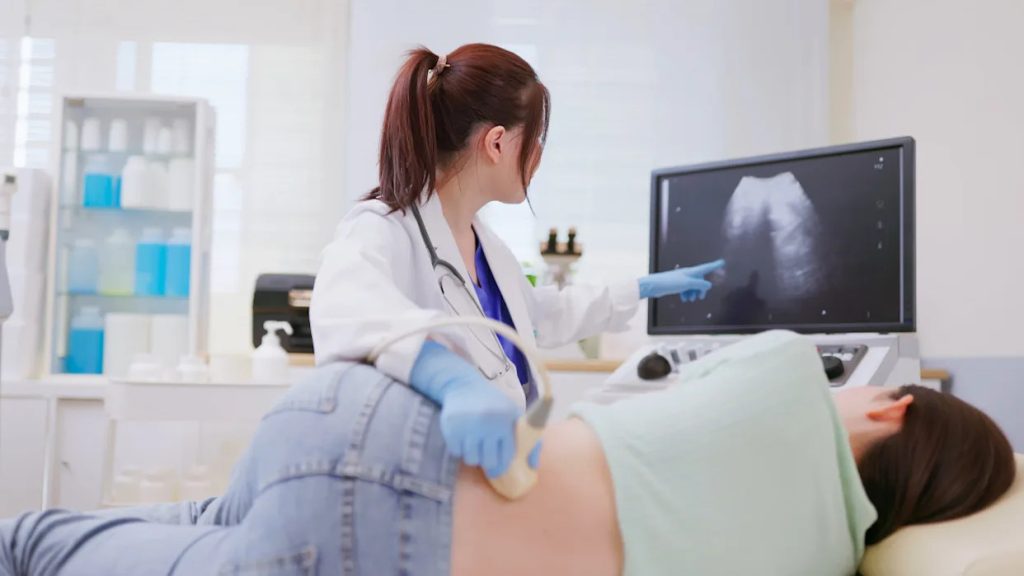Doctors Say This Common Pain Could Be a Warning Sign of Kidney Problems

Your kidneys are tiny, bean-shaped organs with a mighty purpose. “Your kidneys are your body’s natural filters and they clean out waste, balance fluids and help regulate blood pressure,” says Dr. Uma Darji, MD, a family medicine physician based in North Carolina. “If they stop working well, toxins can build up quickly.”
If you have a pool, you likely notice when the filter stops working—dirt and grime start building up. You may also have reminders in your phone to change your water and coffee filters regularly. While kidney issues can happen without symptoms, your body might send you signs that your kidneys aren’t functioning as they should. However, you have to know what they are and tune into your body, which can be challenging in today’s hustle-centric world.
“Paying attention to early warning signs can be the difference between fixing something reversible and facing long-term kidney damage,” Dr. Darji says.
Doctors warn that this one type of pain seems “normal,” but is often a missed sign of kidney issues. They share what it is, and why you shouldn’t dismiss it.
This Type of Pain Could Be a Sign of Kidney Issues
Doctors reveal that lower back pain is an often written-off sign of kidney issues. However, when you think about your anatomy, it makes sense that it’s worth investigating the potential for kidney issues if you have pain there.
“Your kidneys sit high in your back, just under your ribs, so problems there often show up as flank or lower back pain,” explains Dr. Raj Dasgupta, MD, a physician whose specialties include internal medicine and the chief medical advisor for Sleepopolis. “Because of this location, it can feel like ‘normal’ back pain, even though it’s coming from your kidneys.”
There’s another (understandable) reason you may mistake lower back pain associated with kidney issues as a “normal” part of life.
“Most people automatically assume back pain comes from muscles, poor posture or activity,” Dr. Dasgupta says. “Mild kidney pain can feel similar, so it’s easy to chalk it up to a pulled muscle or sleeping funny.”
Importantly, lower back pain can be—and often is—the result of sitting at your desk in a hunched position all day or lifting heavy Trader Joe’s bags (or weights at the gym) without proper form. However, it’s best to rule kidney issues out by speaking to your doctor about your concerns.
“While it’s tempting to self-diagnose or ignore the pain, doing so can lead to making any potential underlying conditions even worse,” explains Dr. Natasha Bhuyan, MD, a family physician.
Related: The Common Habit That Could Be Damaging Your Kidneys, According to a Nephrologist
Kidney Pain vs. Back Pain: How To Tell the Difference
“Kidney pain usually feels deeper and more internal than sore muscle back pain. It’s often a dull, steady on one side,” Dr. Dasgupta explains, adding that people with kidney issues often report not being able to get comfortable even when they change positions or stretch.
Dr. Bhuyan notes that the feelings can vary based on the kidney issue.
“Kidney stones, for example, sometimes present as sharp or stabbing lower back pain,” she says. “Also, an infection of the urine can spread to the kidneys—this is called pyelonephritis. This can also present as lower back pain that is dull, along with a fever.”
Dr. Bhuyan also points out that hydronephrosis, or swelling of the kidney, typically does not cause pain. However, sometimes, this condition can cause discomfort. Other underlying conditions can also set off a ripple effect that impacts your body’s filtration system.
“Chronic issues, like kidney disease from diabetes or high blood pressure, or conditions like polycystic kidney disease, can also cause discomfort,” Dr. Dasgupta explains.
It’s a lot to take in, which is why it’s critical to remember that the best way to determine whether you’re experiencing kidney or back pain is to speak with your physician. Still, knowing (generally) how kidney pain can feel different than discomfort associated with something like age or posture can help start the conversation with your care team.
Related: Here’s Exactly How Long It’s Considered Healthy To Hold Your Pee For, According to Urologists
Other Signs of Kidney Issues and What To Do
Lower back pain is not the only sign of kidney issues. Dr. Daniel Kim, DO, a board-certified physician with Medical Offices of Manhattan and a LabFinder.com contributor, warns that other potential symptoms that you are having kidney problems include:
- Nausea
- Vomiting
- Fevers
- Chills
- A burning sensation when peeing
- Blood in your urine
- Swelling in legs, ankles and feet
It’s essential to reach out for help if you experience these symptoms, whether or not you have lower back pain.
“If back pain shows up with urinary changes, fever, nausea or blood in the urine—don’t wait it out,” Dr. Darji emphasizes. “Get checked with your primary care doctor. If the pain is sudden and severe, then go to urgent care or the ER.”
Dr. Kim echoes these sentiments, sharing that quick action as opposed to writing pain off as “normal” is such a game-changer (and perhaps life-saver).
“Early detection is important because kidney disease often develops silently without symptoms,” he says.
So if you do notice red flags like lower back pain—as worrisome and uncomfortable as they may be—the silver lining is that it gives you the important message to get help.
Up Next:
Related: ‘I’m a Physical Therapist—Here Are Exercises I Wish People Would Do to Help Ease Back Pain’
Sources:
- Dr. Uma Darji, MD, a family medicine physician in North Carolina
- Dr. Raj Dasgupta, MD, a physician whose specialties include internal medicine and the chief medical advisor for Sleepopolis
- Dr. Natasha Bhuyan, MD, a family physician
- Dr. Daniel Kim, DO, a board-certified physician with Medical Offices of Manhattan and a LabFinder.com contributor
This story was originally reported by Parade on Sep 23, 2025, where it first appeared in the Health & Wellness section. Add Parade as a Preferred Source by clicking here.


